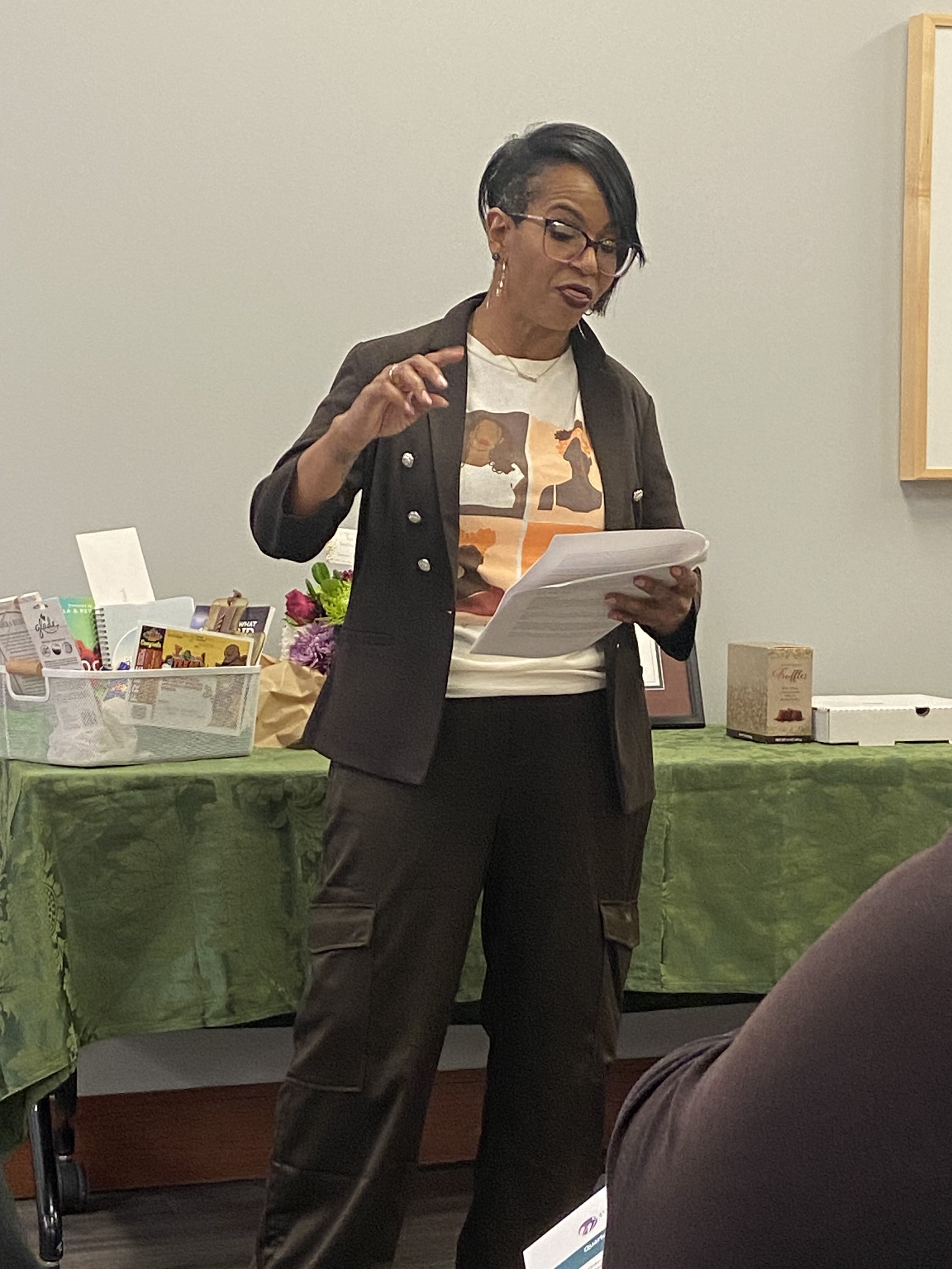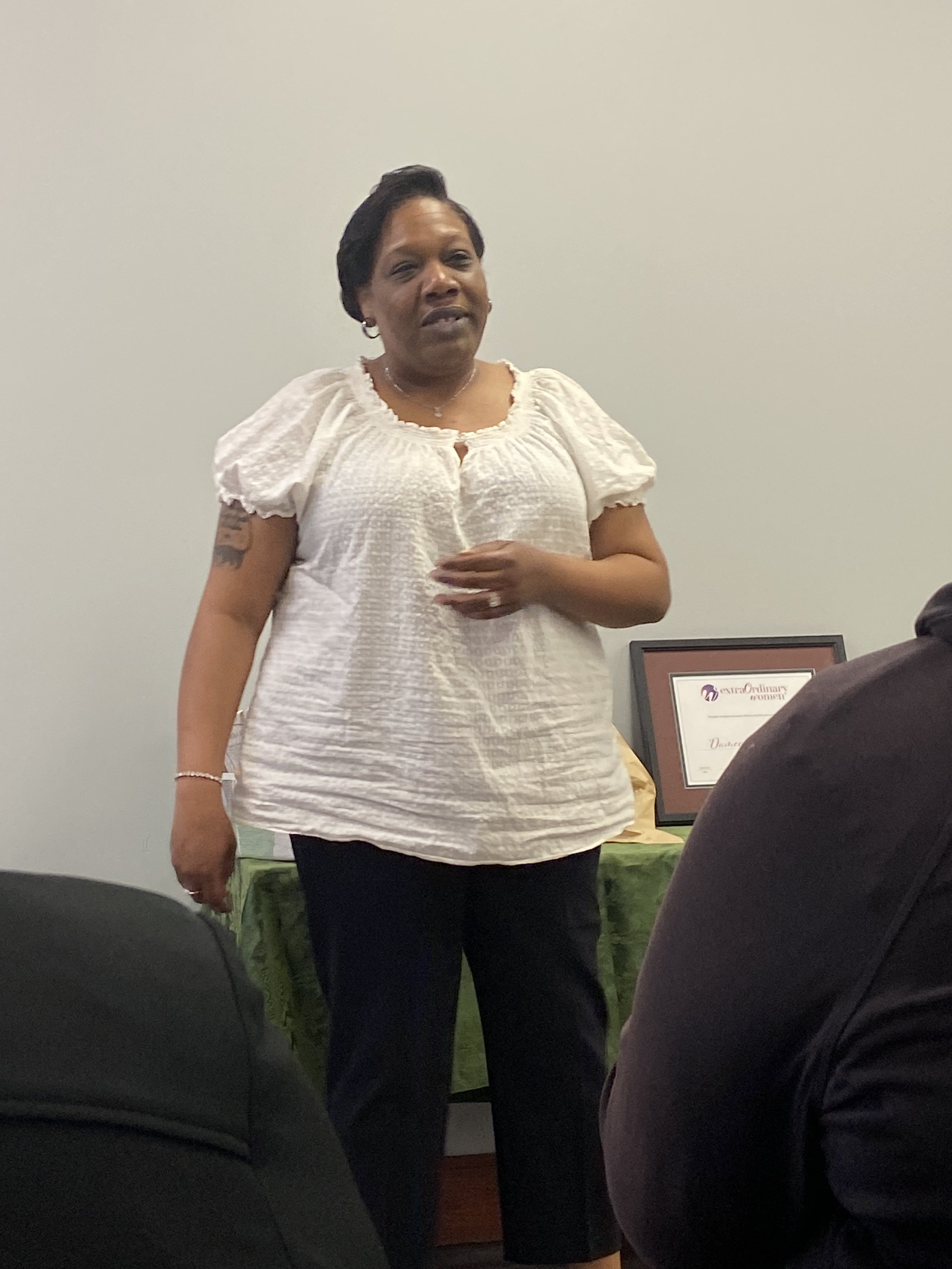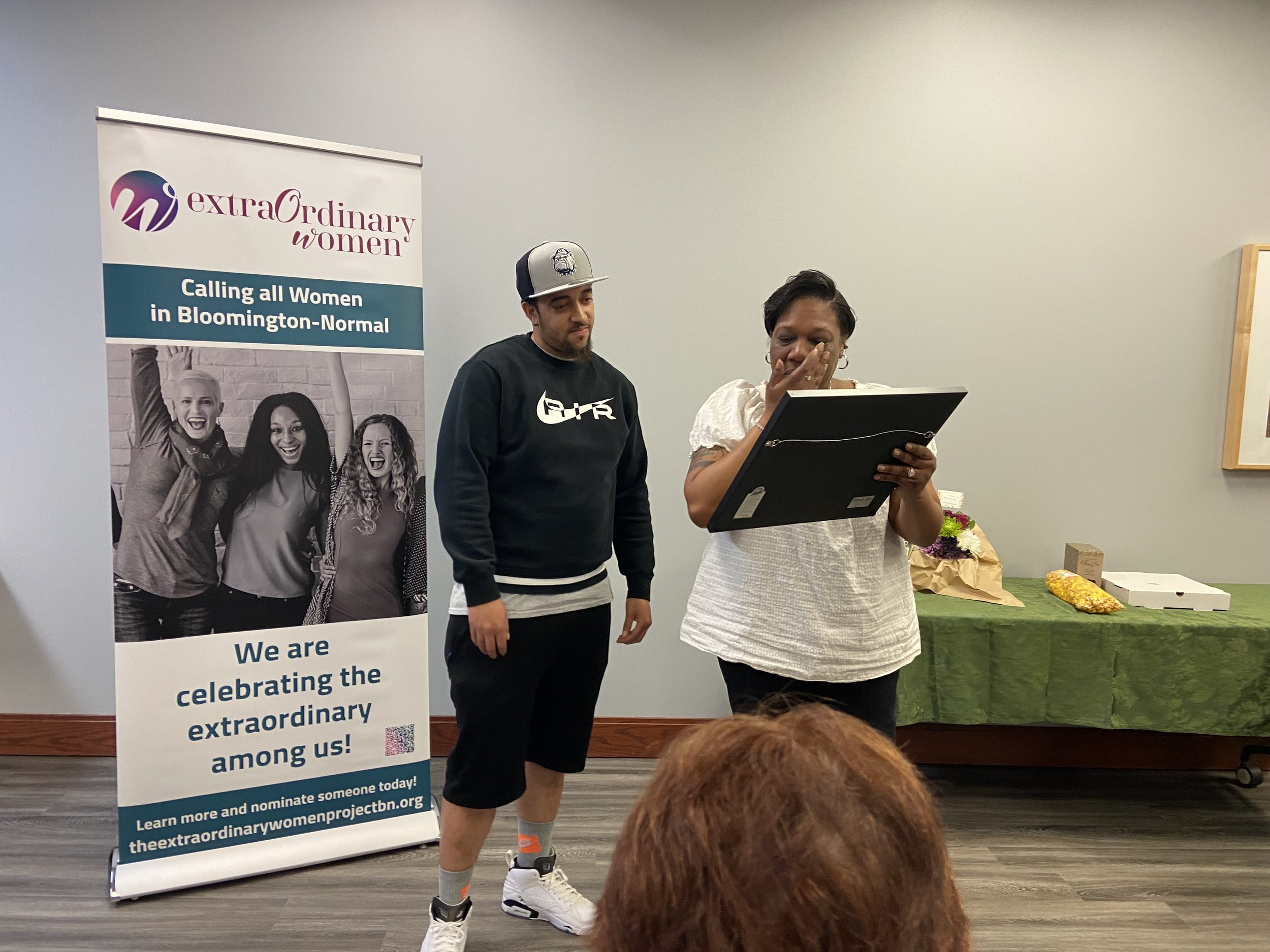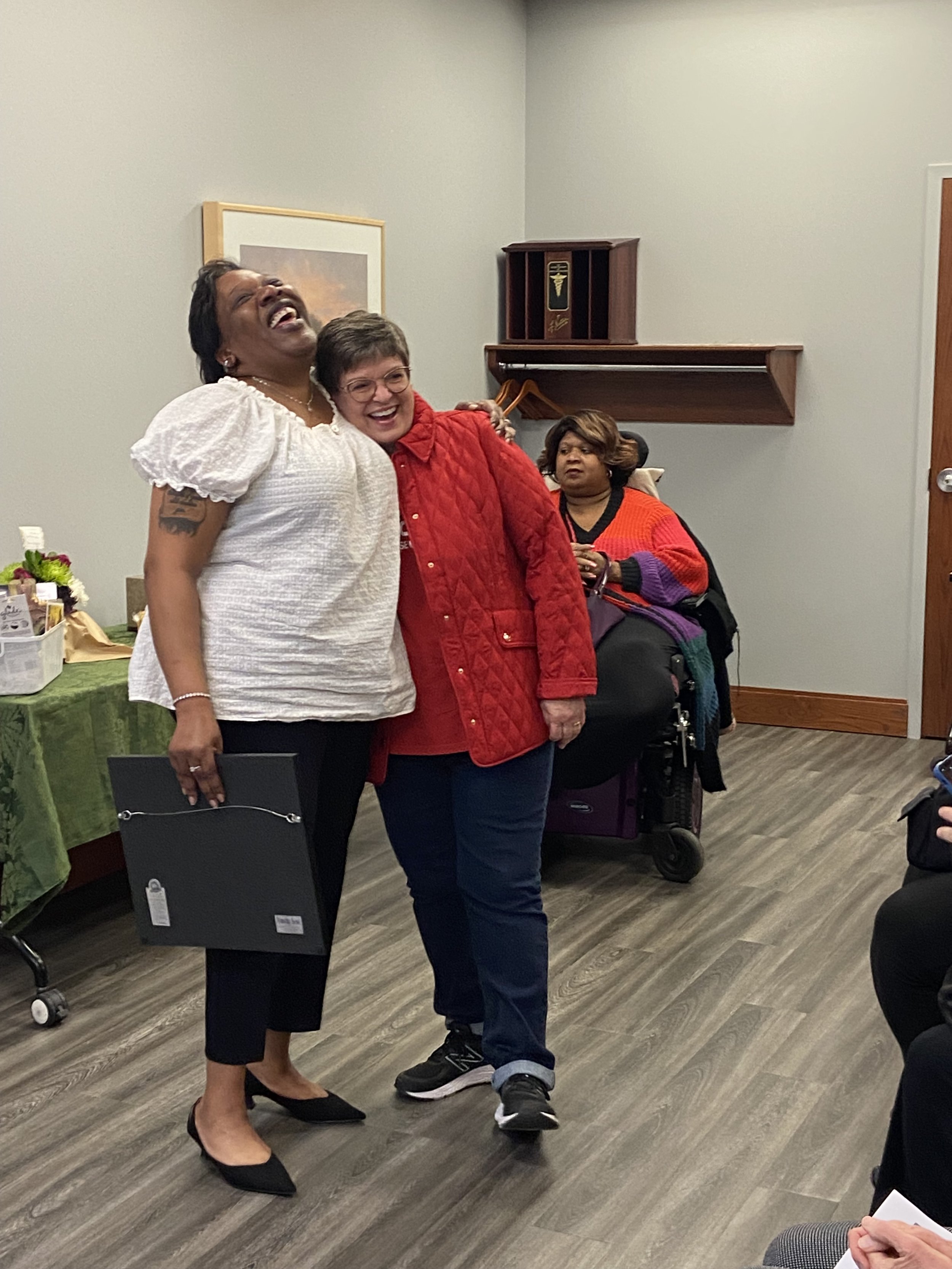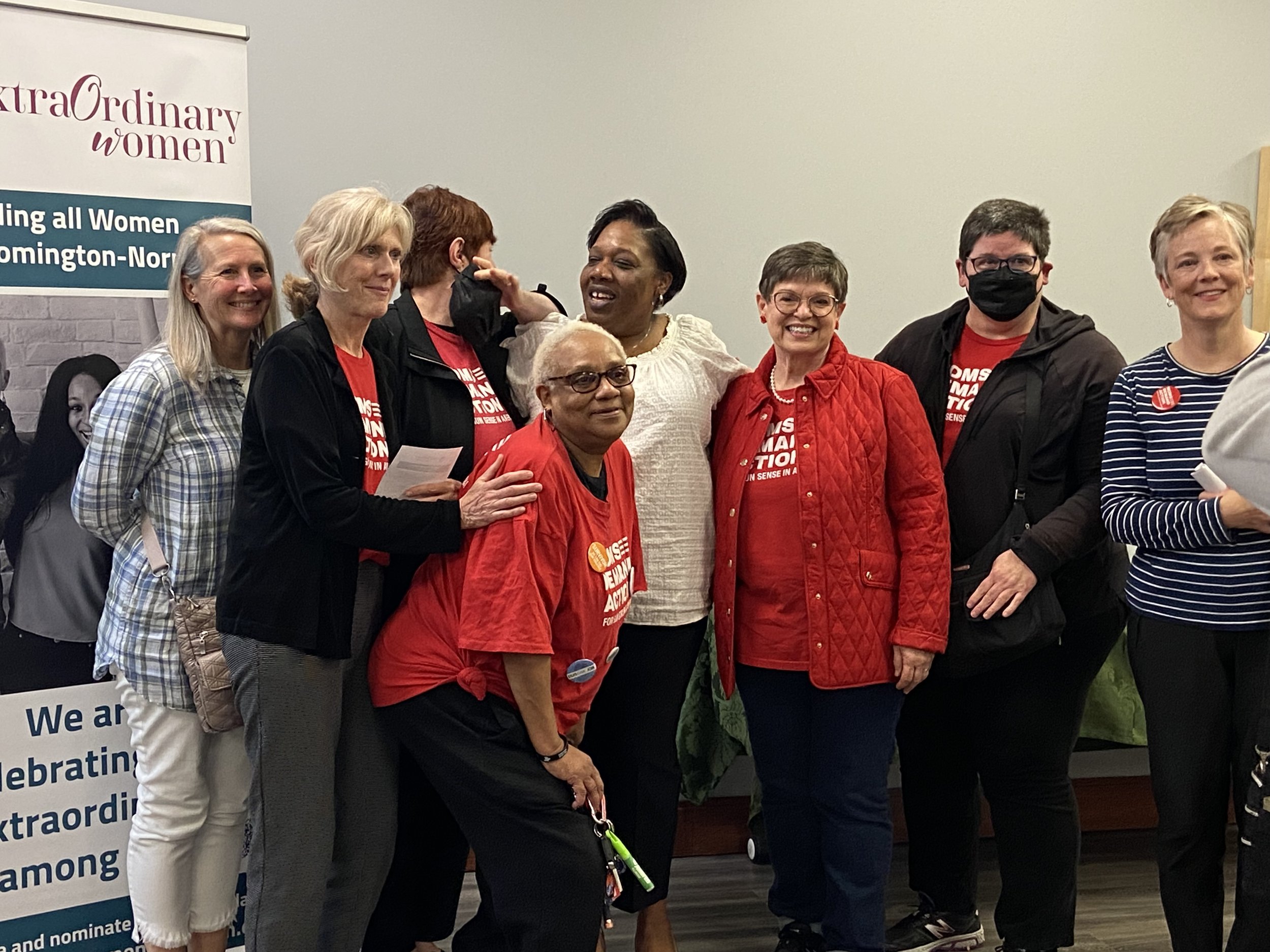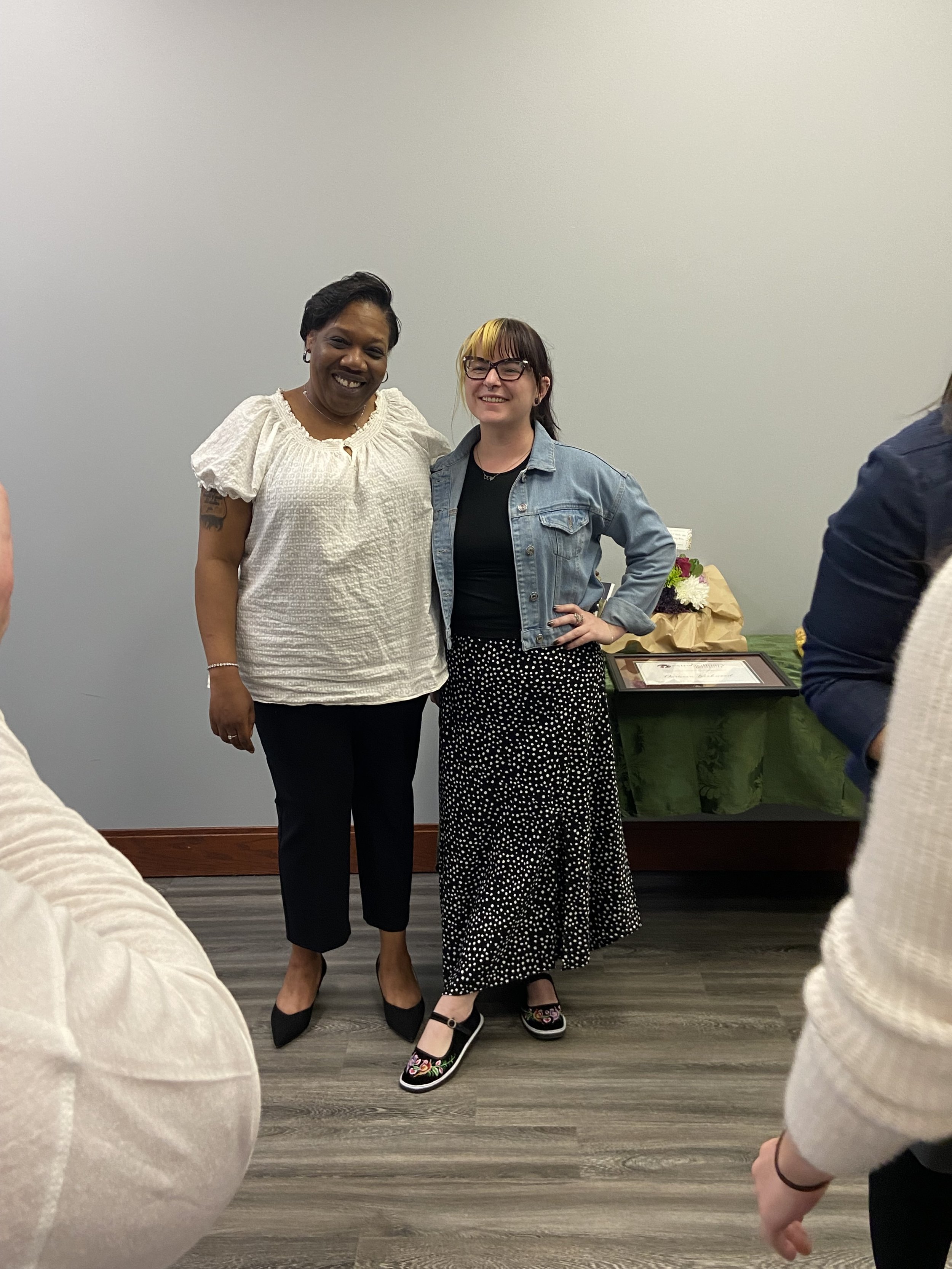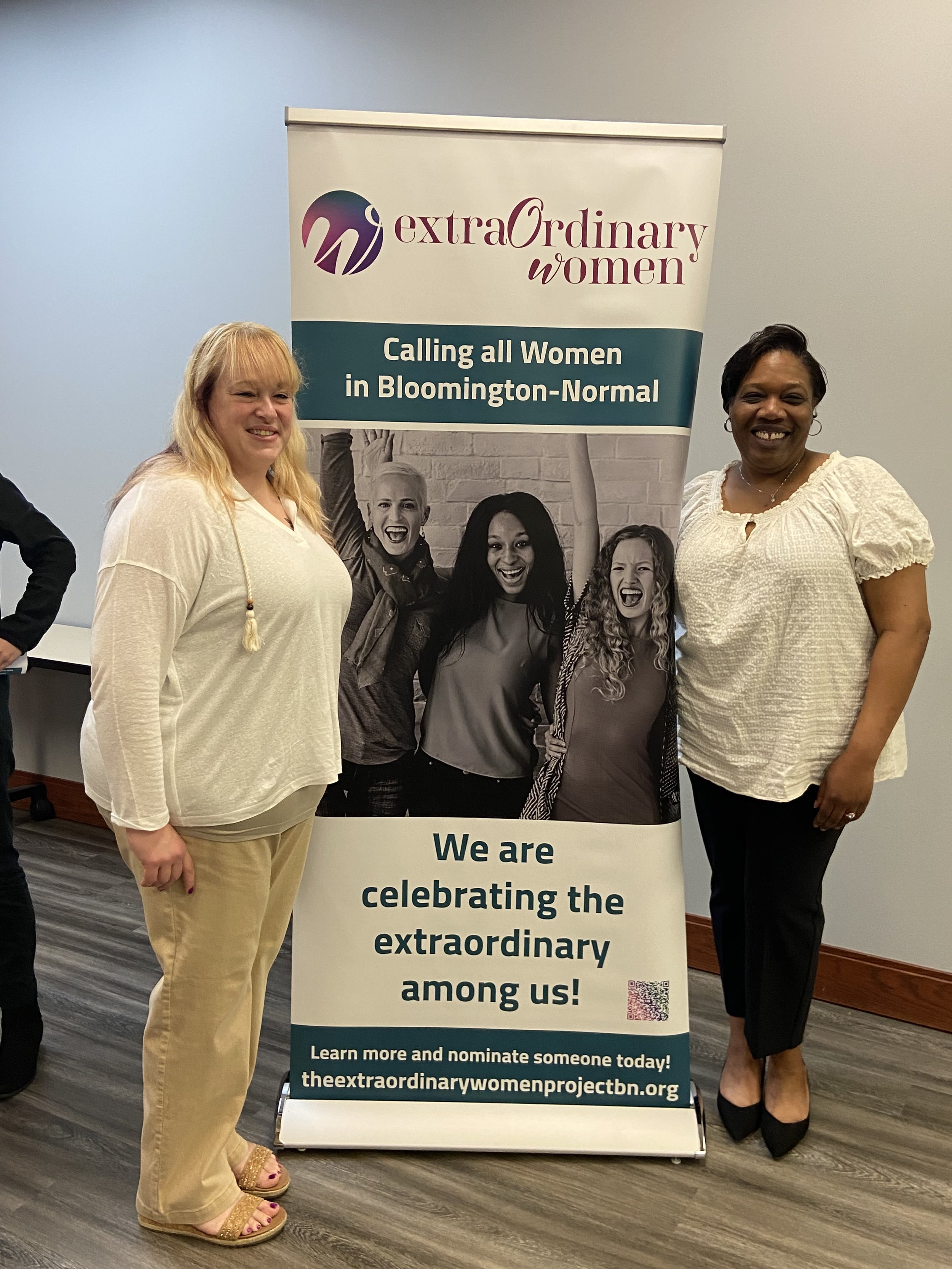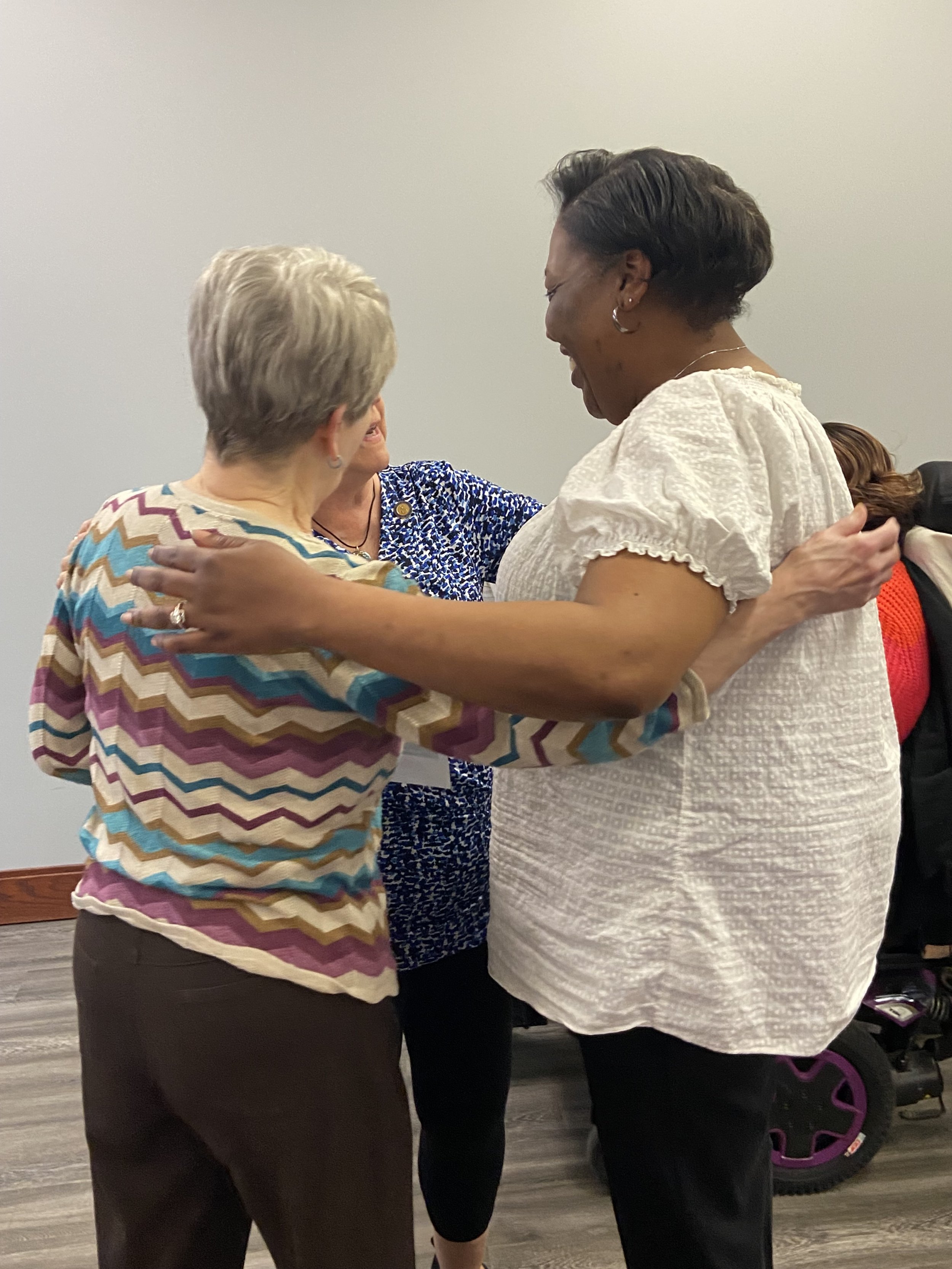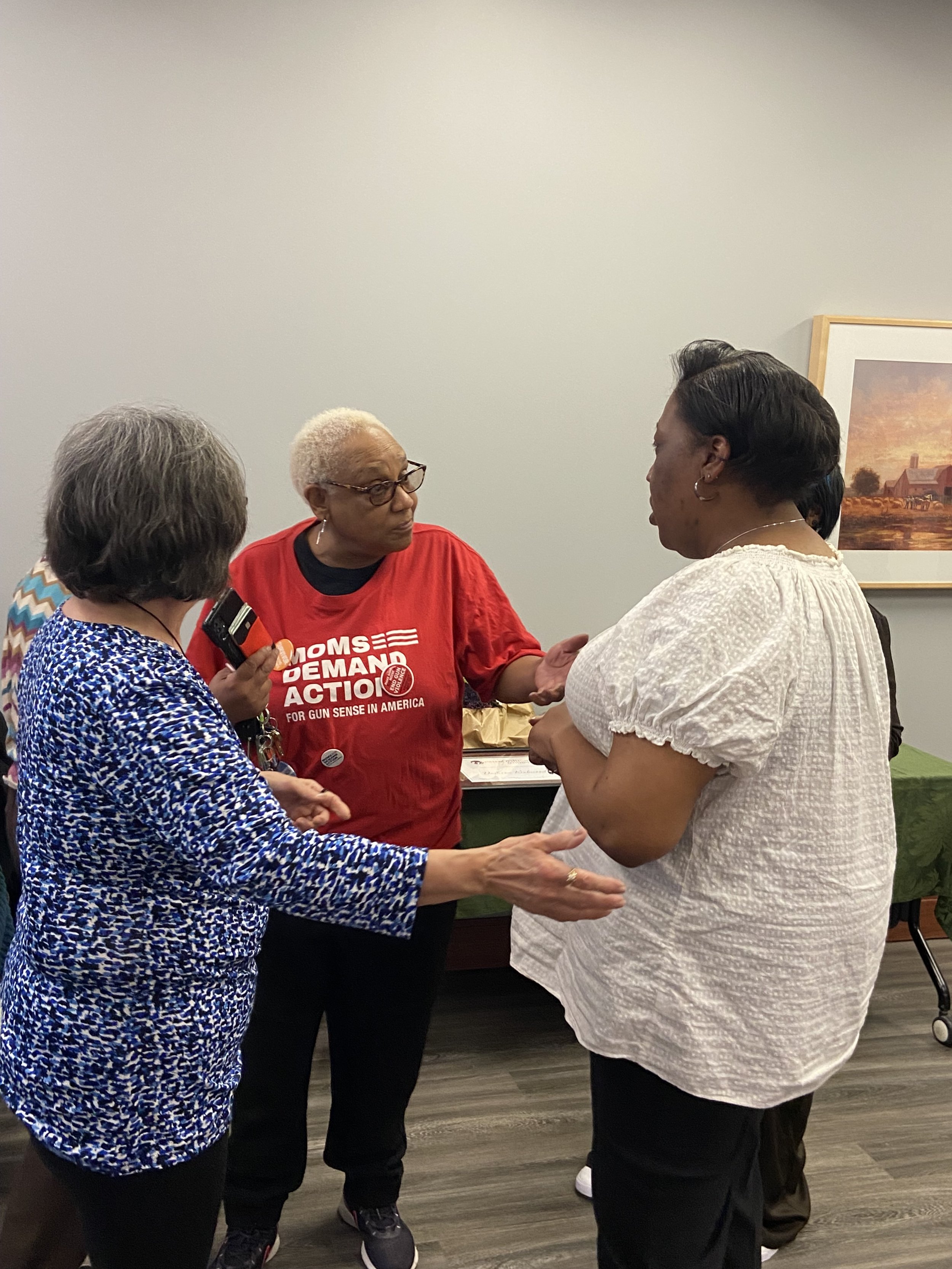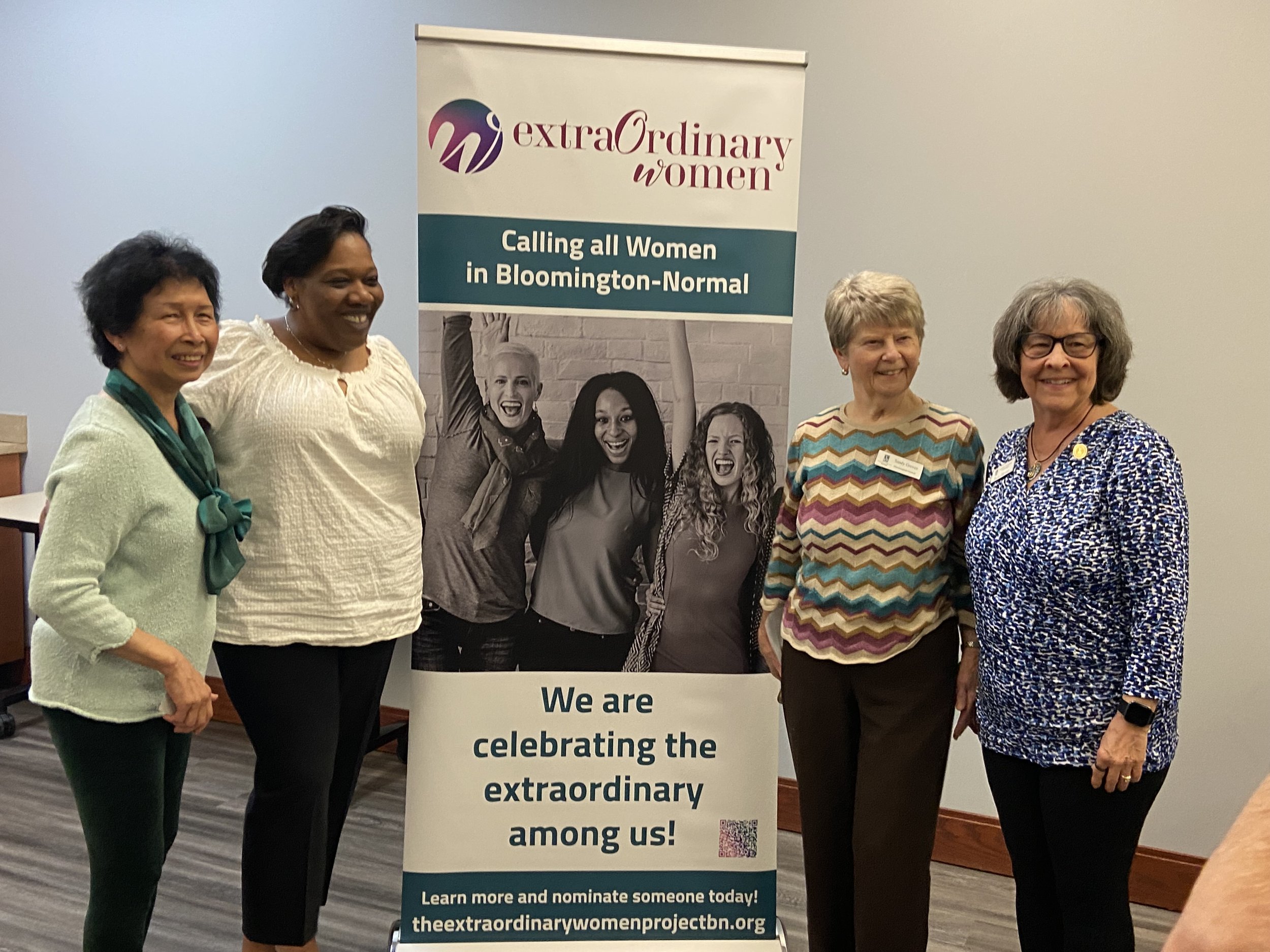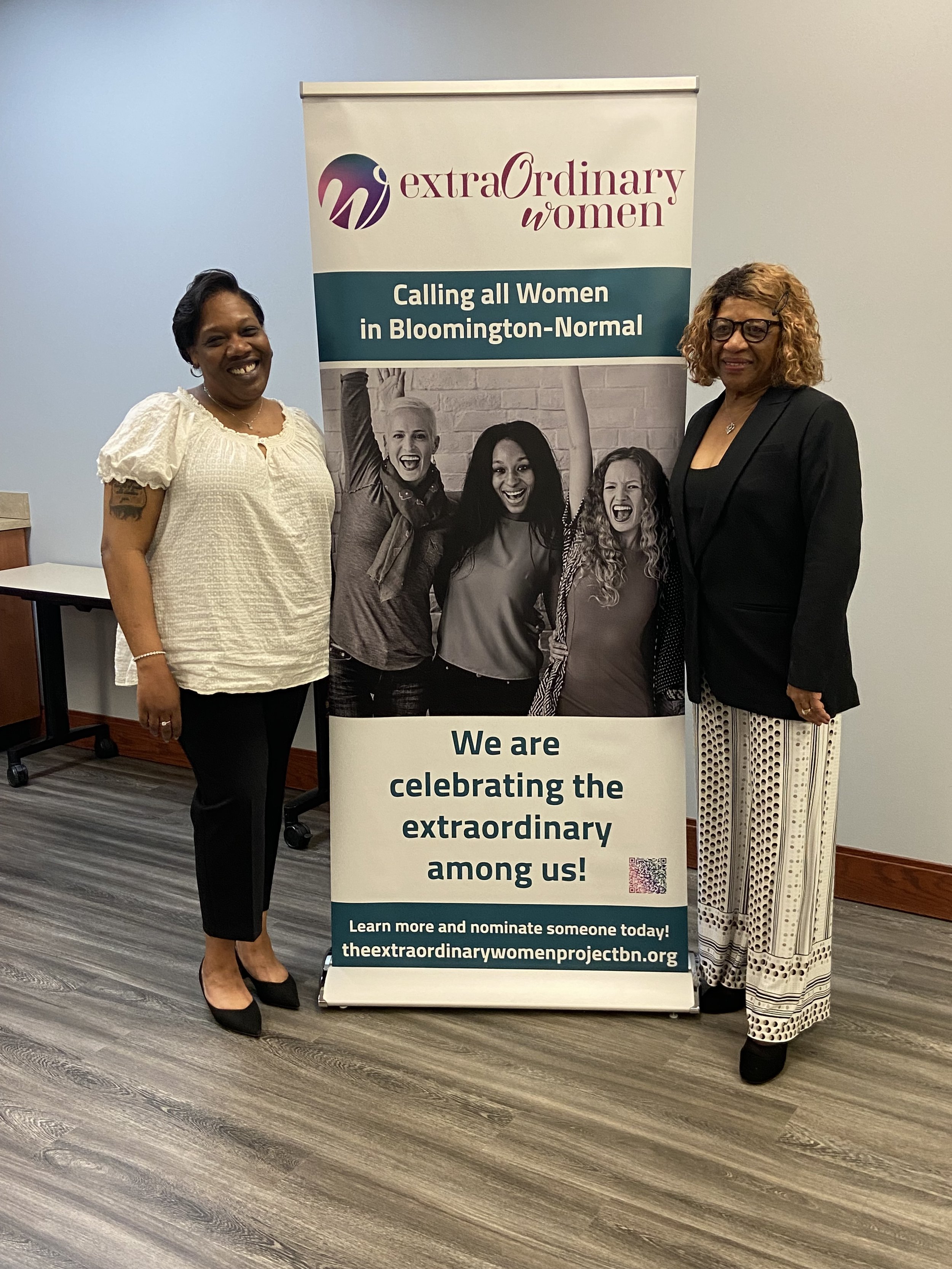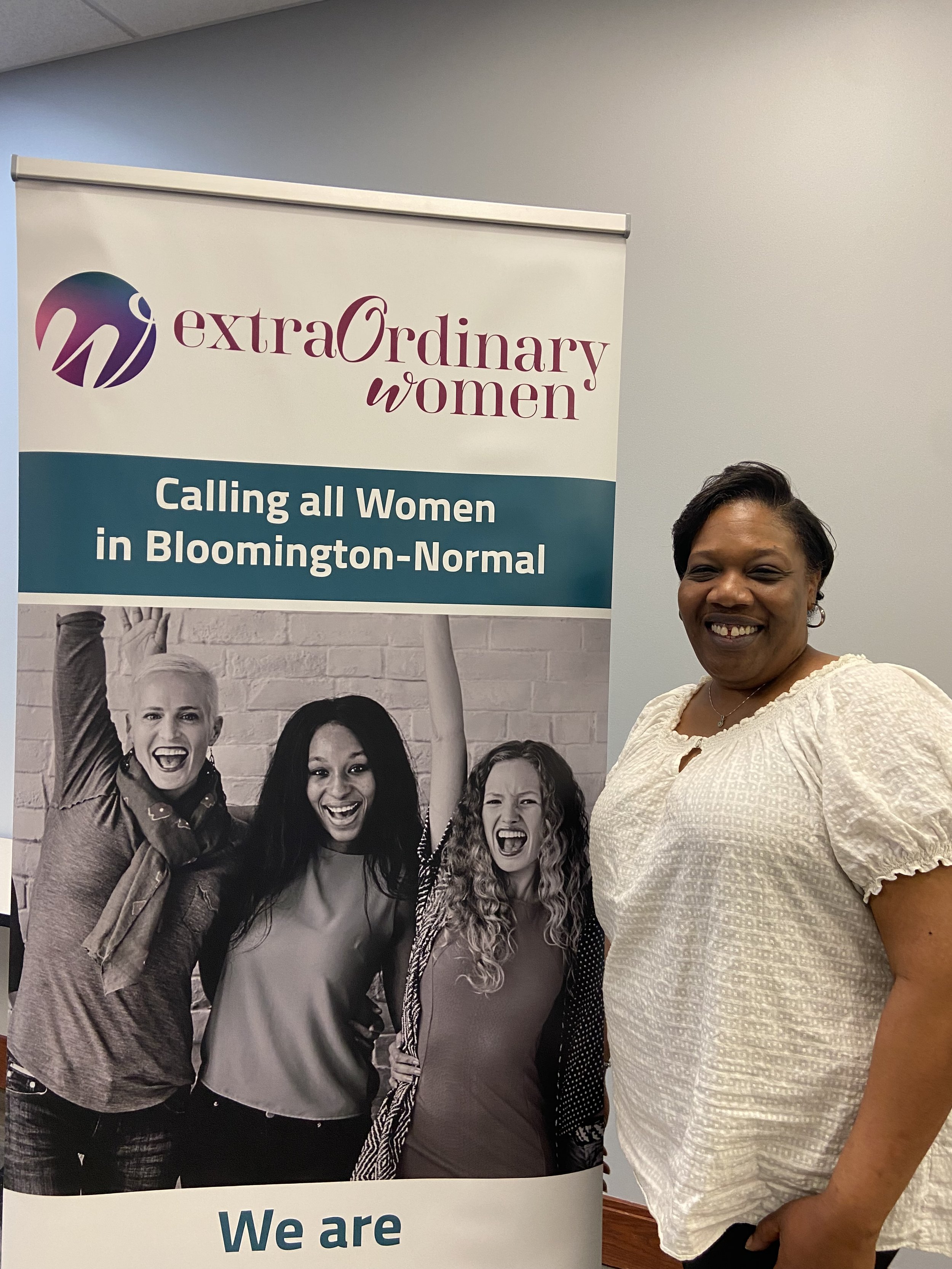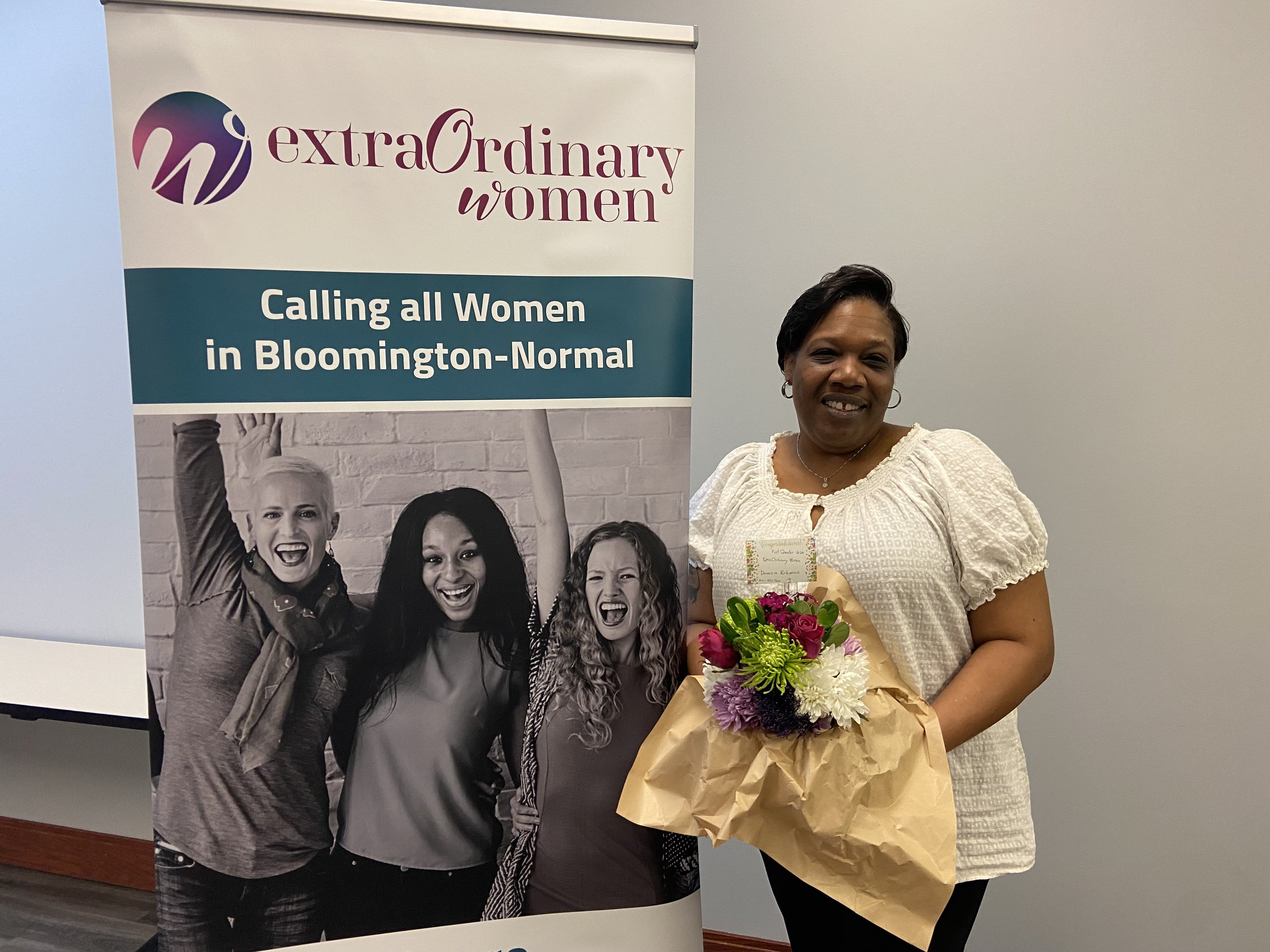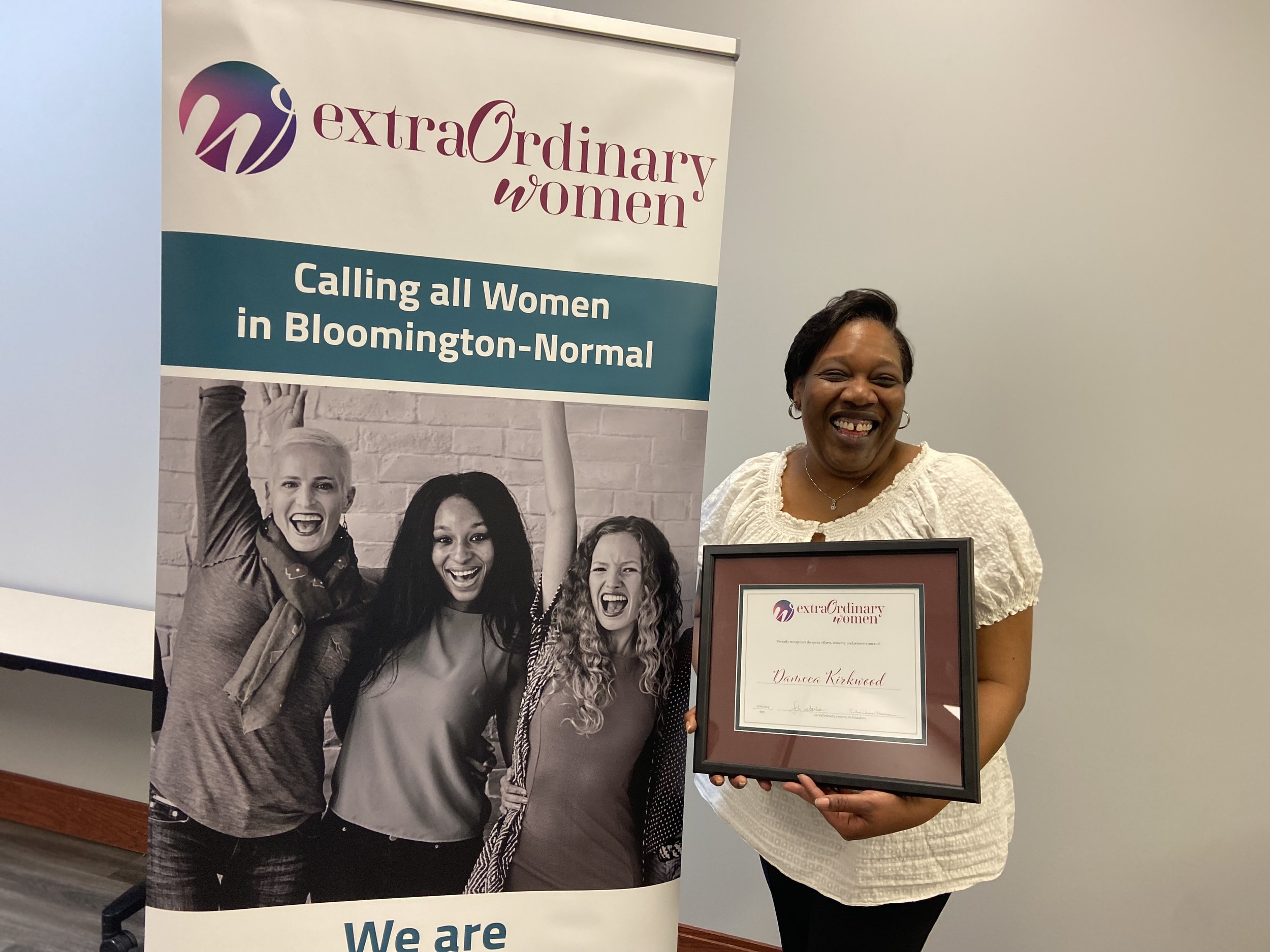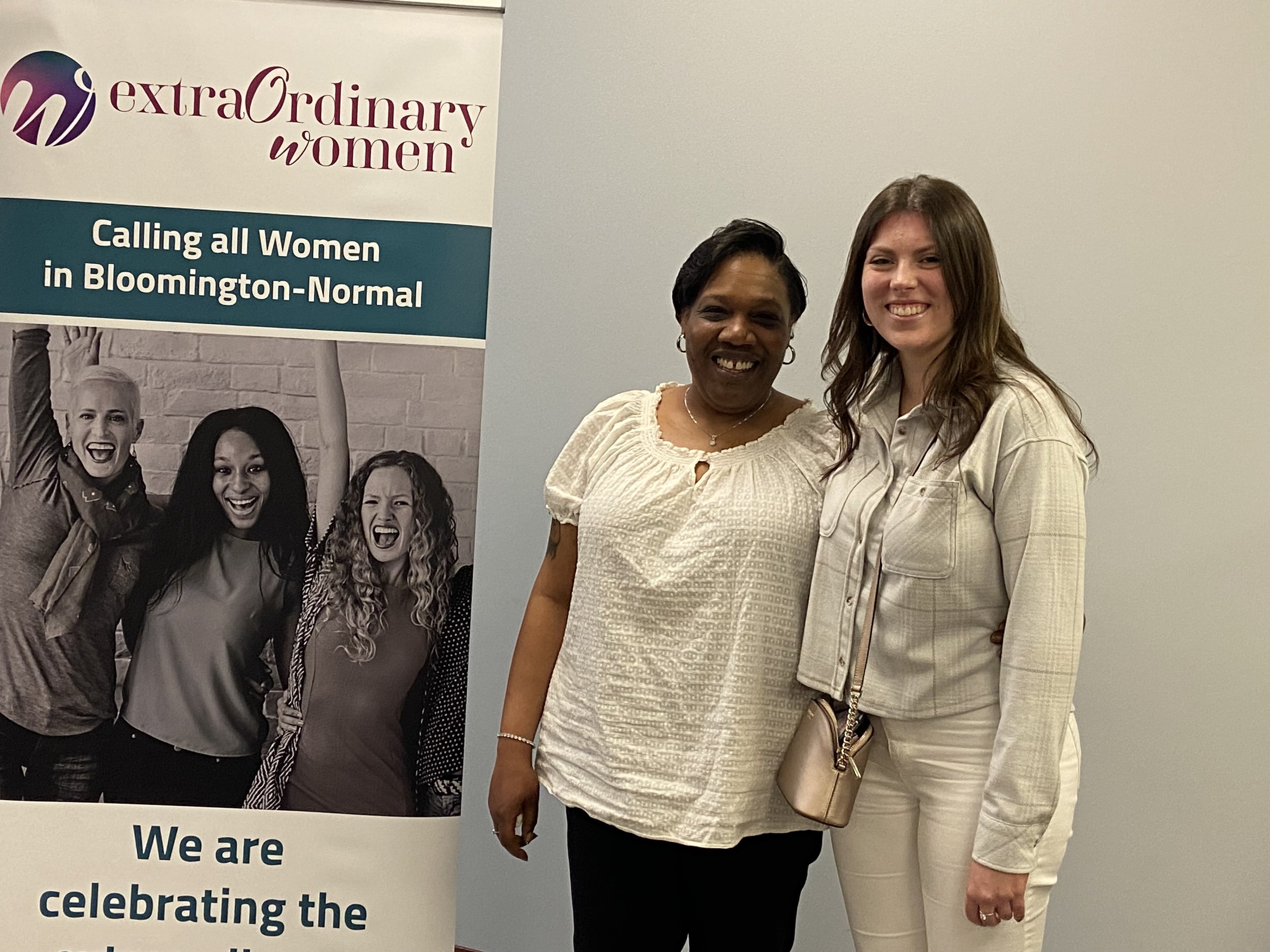Congratulations to Dameka “Meca” Kirkwood
Defining Moments
On October 3, 2018, the day after Dameca Kirkwood lost her father, a man she describes as “the best father anyone could ask for,” her son Trevonte Kirkwood was too distraught to celebrate his own birthday. The devastating whirlwind of grief engulfed them both.
“Oh my God, I’m so sorry I forgot to get you a birthday gift!” Dameca realized as the new day approached. In her frantic state of mind, her son’s birthday hadn’t crossed her mind.
“It’s okay, Ma. There’s always next year,” Trevonte said kindly with a smile.
Fast forward to October 30, 2018, the day after what would’ve been Dameca’s father’s birthday, and the night before Halloween. The family was still in a state of shambles, coping with their grief by holding each other close. Trevonte promised his daughter that he’d take her Trick-Or-Treating the next night, while Dameca was on the phone consoling her mother, Brenda, who lived a few blocks down from her in west Bloomington.
Over the bustling street noises picked up from her mom’s phone line, Dameca could hear the sound of sirens, “All right, B-Killer,” she said bidding her mom goodnight using her catchy nickname. “I’m going to go ahead and let you go because y’all got a lot going on over there.”
About two minutes after Dameca and Brenda hung up the phone, Dameca received another phone call, this time from her son Trevonte’s girlfriend, Amari.
“Meca, Meca! He’s been shot, he’s been shot!” Mari cried out to Dameca.
Dameca’s heart sank, hearing Mari’s voice yelling the words every mother fears. Before having the chance to process a single thought, Dameca responded, “Is my son dead?”
“They’re working on him,” she replied.
“Where are you, Mari? Where are you?” she pleaded.
It occurred to Dameca then that those sirens she heard over the phone were for her son and that he might never make it to “next year” for that belated birthday gift. He’d never be able to take his daughter trick-or-treating.
At only 27-years-old, Trevonte was taken from his mother in one of the worst possible ways, brutally shot and murdered.
Through the Grief
Dameca was born and raised in Bloomington. The third of four children, Dameca is cherished by her family, who she also holds near and dear to her heart, especially her mother, Brenda. “If I had my pick of women to be my mother, you better believe I’d snatch her up,” Dameca laughs appreciatively.
“I have great parents,” she smiles and boasts, reflecting on her childhood and how amazing her family had always been towards her. They were supportive and helped her in any way she needed.
When asked what school she attended, Dameca quickly responded: “All of them,” which she accompanied with her famous laugh. A true product of Bloomington-Normal, Dameca attended Bent, Oakland, Stevenson, Chiddix, Bloomington Junior High and Bloomington High School.
Dameca described school as being difficult for reasons that at first she did not know why. She recalls a time in fourth grade when she was learning cursive. She was called up to the front of the class to write a capital letter “G” on the board. After trying about three or four times, she continued to write the letter backwards.
In her Individualized Education Plan (IEP) she was labeled as “lazy,” harboring “behavioral issues” and “unwilling to learn.” Dameca felt confused, trying to come to terms with how badly she did actually want to learn, but simply couldn’t.
“As a little girl who is a minority, who already feels different, to be labeled as “lazy,” when in fact there was a real learning barrier, is frustrating. Those thoughts of others’ labels were projected onto me. And now at 48, that’s something I’ll never forget.”
“However, I decided to dive deeper into my learning difficulties. I look beyond the surface. I knew I wanted to write that”G” but I couldn’t because I didn’t have the training that allowed me to write that “G”.
“I told my teacher, ‘It just doesn’t make sense to me.’ She responded, ‘What do you mean it doesn’t make sense?’ They didn’t care enough to get to the root of the problem..
“This experience, however, has led me to lead with empathy. Now, when I notice a slight difference in the way someone else is processing something, I will ask the necessary questions to get to the bottom of it and do what I can to help someone else because I know what that feels like.”
Even though the academic portion of school was difficult for her, Dameca found a strong support system through her four best friends who she’s known since elementary school. Mel, Nikki, Liz and Alli have always held her accountable and encourage her even to this day.
“I’ll be talking with my girls, and they’ll ask me, ‘Meca, did you put your makeup on today?’ I’m like ‘Duh!’ ” Dameca says, gesturing to her face, “They’re like ‘No, did you put your makeup on today - did you check in with yourself in the mirror, and make sure you are good?’ It’s the way we hold each other accountable.”
“Even now, so many years later, my best friend and I do a BFF-mid-day-check-in,” she shares.
When Dameca was in sixth grade, she finally had an answer as to why she continuously wrote that “G” backwards so many times; she was diagnosed with dyslexia.
Being that it was the ‘80s, there was not a lot of research done on learning disabilities such as dyslexia. There was no internet available to do your own research and there was not much access to professional journals on the matter. Nor was there much awareness in the school system.
However, that did not stop Dameca’s mother, Brenda, from fighting for her, working with her, and getting her as much help as she possibly could.
“I had to say ‘Peter Piper’ over and over. The girl with dyslexia had to say ‘Peter Piper.’ My mommy worked with me, she was diligent, patient, comforting, firm and loving, so much so that I can say ‘Peter Piper picked a peck of pickled peppers’ like nobody’s business. Once my mom figured out the problem, she did what every mother would do, and she did everything she could to help.”
When Dameca was 15, she became pregnant with her only son, Trevonte. She initially hid the pregnancy from her family, terrified of what would happen.
Once her family found out about her pregnancy, she was surprised and blessed to be met with grace and compassion. Her mother continued to do what she does best, fight for Dameca. Even in the hospital when giving birth, Dameca describes how stressed she felt, worried her newborn baby was going to be removed from her custody. Brenda continued to fight for Dameca.
“We are bringing him home,” Brenda told the social workers who were swarming her, her 15-year-old daughter and her newborn grandson.
Overwhelmed with the responsibilities of being a young new mother, Dameca decided to drop out of her junior year of high school and become a full-time mom. By 18, she was married.
Dameca became a military wife, moving with her then-husband and Trevonte to Hinesville, Georgia. Dameca was married for 10 years before she decided to return to Bloomington with her son. Dameca felt she needed to elevate her life, while her ex-husband was satisfied with remaining stagnant.
“Marriage is what you make it, and that particular situation did not suffice. Staying married was not going to give me the life that I wanted for me and my son,” she reflects.
Both of Dameca’s older siblings, her brother and sister, have relocated to Georgia since and have tried to convince Dameca to return. “No. I’ve been there, done that. The whole busyness, the congestion - taking like four hours to get a Starbucks coffee - I’m like, no, I’m good,” Dameca says with a wave of her hand a slight smirk. Her younger brother still lives here in Bloomington.
Dameca felt rather secluded living in Georgia, where she had nothing to do but be a mom and a wife. The isolation ate at her, and she missed the neighborhoods of Bloomington where she grew up. She missed the sounds of basketballs bouncing on the street, the smells of the neighbor’s barbecues, people walking up and down the street and the laughter of children playing. She needed to come home.
“I’ve always been about other people and what makes everyone else happy. Rarely do I do things for myself. The first priority I had was being a mom, the second was being a wife, the third was caring for myself. My divorce was one of the only times I ever did something for myself.”
After seven years of being out of school, Dameca decided to go back to school to earn her GED in 2000. This was another thing she needed to do for herself. Dameca opted to take GED classes over taking the test, afraid that her test anxiety would hinder her from being able to pass.
After only three classes, Dameca’s teacher stopped her, saying, “Why are you here? You’re acing everything. Just go take the test!”
With a fire lit under her by a teacher who actually believed in her, Dameca took the GED test and passed with flying colors.
“I was shocked because I had never really been studious and I had been out of school for so long. I didn’t have the confidence that I would pass. But that little girl lived inside of me, the one who had to fight for all her dreams. I did it, and it felt rewarding. I was very proud of myself for taking the initiative.”
Dameca started working part time at The Salvation Army. She worked there for nearly four years. She started out working on Township, a local assistance program which helps to provide temporary food, shelter and emergency relief to those in need. Dameca put in her hours at The Salvation Army to earn benefits, doing small petty jobs to scrape by.
After what felt like forever applying to full time jobs with her case manager, Dameca felt defeated. Dameca got to her breaking point on a hot and sunny afternoon in her case manager’s office after walking in the scorching heat from a shift at The Salvation Army. Dameca absolutely could not stand the months and months passing by her without having a full time job to support herself and her son. Her sliver of hope was slowly dwindling down to nothing. She barely had enough money for necessities including food. Dameca says that if she closes her eyes, she can take herself right back to that full-blown meltdown in her case manager’s office.
After she gathered herself, her caseworker told her, “These jobs you’re applying for, I’m not supposed to tell you this, you’re really overqualified.”
She remembers retorting, “How am I overqualified if I’m walking to The Salvation Army? I don’t care. I need a job, I need money.”
That’s when he let her know that The Salvation Army was actually hiring. That afternoon in the blistering sun, Dameca walked her way right back to where she came from and submitted her application.
She was hired in 2013. After starting her position with The Salvation Army, things started to really come full-circle for Dameca. She realized how that little girl that was once ridiculed by teachers and students alike for her dyslexia could tap back into those thoughts and feelings of not being heard, and she could use that to listen to other people.
“I feel most proud when I was able to get people to talk, and get to the root of their problems,” she shares.
For instance, when I see a former client and they mention, ‘Meca, I’m two years clean,’ or ‘Meca, I have my own apartment.’ I’ve witnessed how they’ve grown. And I’ve grown too from it.
Dameca transitioned to work at Marcfirst and then on to Prairie State Legal Services where she currently works. At Marcfirst, Dameca witnessed progress made by residents that only she was able to bring out of them.
“The population I worked with at MarcFirst was nonverbal and nobody ever tried to communicate with them. Well, if we don’t try, they certainly won’t try,” she adds.
She has made an impact on everyone around her through her perfect balance of a nurturing caretaker and a stern motivator. She pushes people to be the best versions of themselves using compassion and hopefulness and by using her listening ear to soak up every part of a person to find how she may best help them.
Dameca couldn’t take that motherly instinct out of her even if she tried. No matter what role she is taking in her life, whether that is as a grandmother to her two young grandchildren, a caretaker for her elderly parents, at her various places of employment, or to her friends, she is constantly there as a strong pillar of support to people in our community.
Some of the most important people in Dameca’s life are her chosen family - her son’s friends who still come by six years after his passing.
“They never miss Mother’s Day, or any holiday for that matter. They come to me, and they say, ‘Ma, I miss him. Ma, why did it happen?’ They’re all grown now, married and with their own families, but they all come back here, to my house, and we make sure each other is okay.”
Dameca blots her eyes, “Don’t get freaked out, this just happens,” she says, struggling to maintain her composure with an apologetic demeanor for her very normal human reaction.
“It’s been six years, and I still don’t know how to cope with losing him,” Dameca shares.
“He was a great basketball player, an excellent father, a sweet soul, just a kind and compassionate person. He once cried to me when he was a boy about how he defended himself while playing sports with some other boys. This boy hurt him, and he cried when he hit him back because he never wanted to hurt anybody. And he had freckles. I never noticed he had freckles until he was gone, but he did,” Dameca smiles with tears filling her eyes.
Dameca chooses to cope piece by piece, day by day. She recognizes that the fact she lost her only son so soon after losing her father will never be something she can completely heal from. Instead, she uses her energy to speak out against gun violence, providing a voice to many other mothers, families and friends who have suffered the loss of a loved one in such horrendous tragic circumstances.
Dameca finds comfort in the fact that her son’s murderer will be spending 50 years behind bars. She is relieved that Bloomington Police Department did their due diligence in finding the person responsible for the awful crime.
Though she knows that will never bring her son back, Dameca thanks the people who have helped her along the way. She wishes the situation had been different for herself, her family and her friends, but she holds the memory of Trevonte in a positive light, sharing his story with others, and keeping his legacy through her relationships with his two children.
“I think that to be ExtraOrdinary is to naturally do what’s right. To stay true to who you are. It’s a balance, but I think I do it pretty well,” she shares. Dameca admits that it’s hard for her to say this, her humility hindering her.
“I was touched so deeply by this award because good things don’t happen to people like me. When you’ve gone through so much, it’s not even supposed to be something that you look forward to,” she shares acknowledging that she has always tucked herself away, thinking she is just moving along at the same pace as everybody else.
However, this time, it is about her, and how ExtraOrdinary Dameca truly is.
Story written by Kaitlyn Klepec, EOW intern

